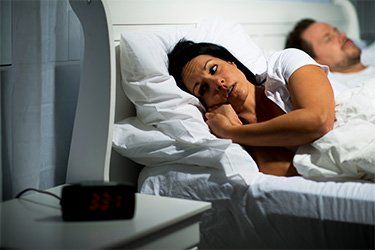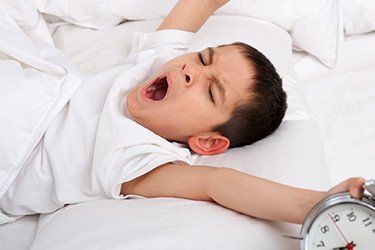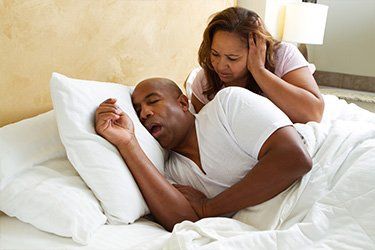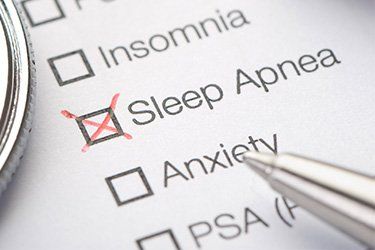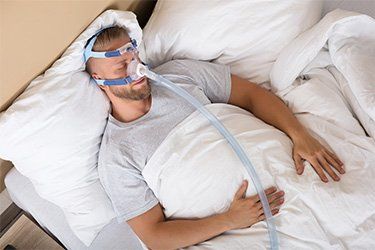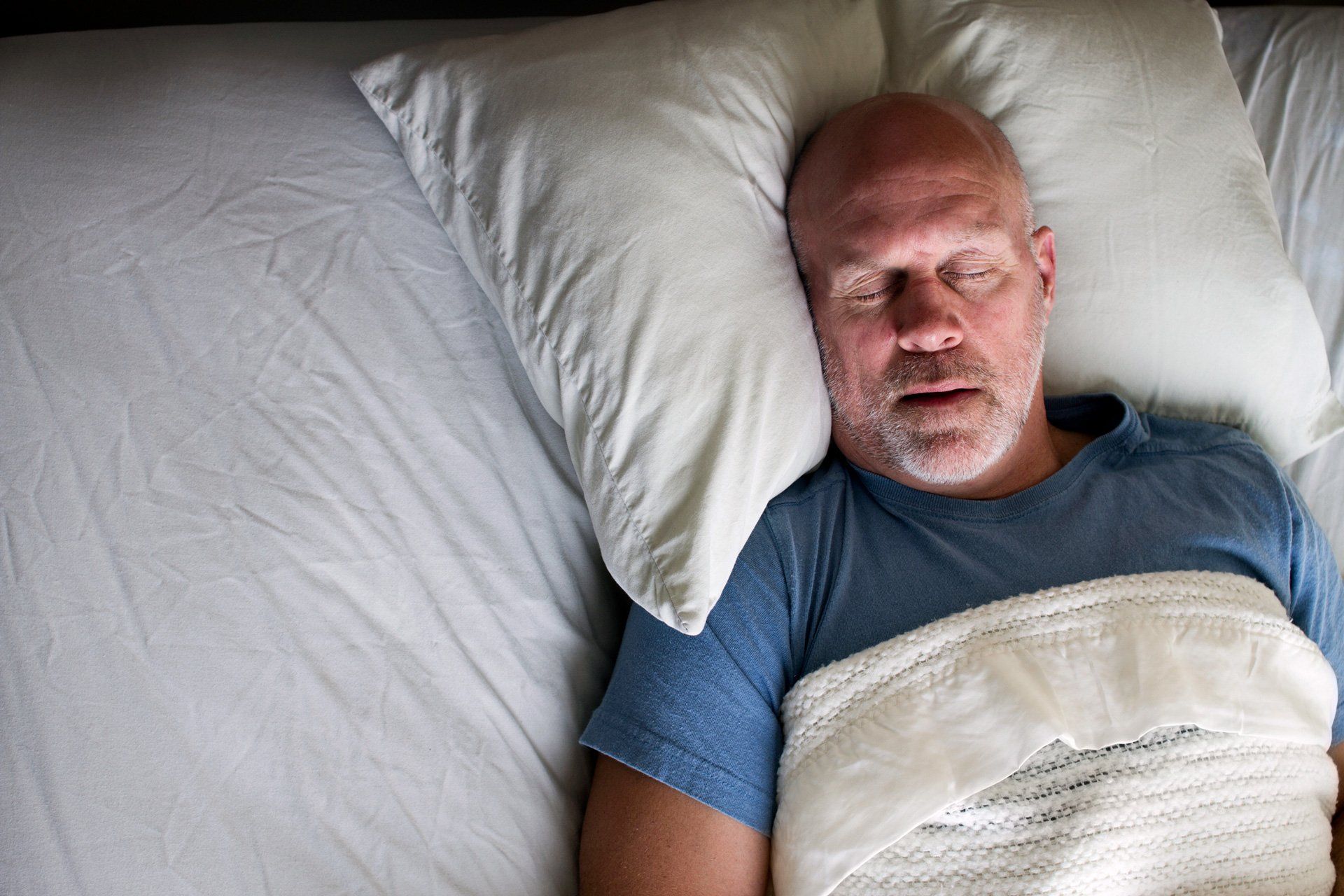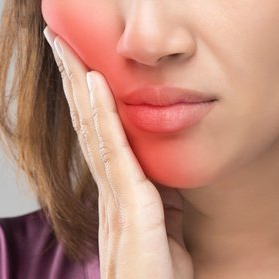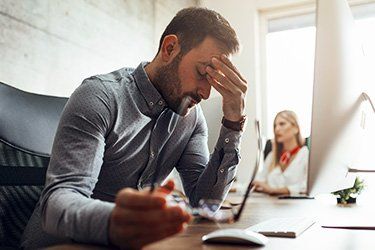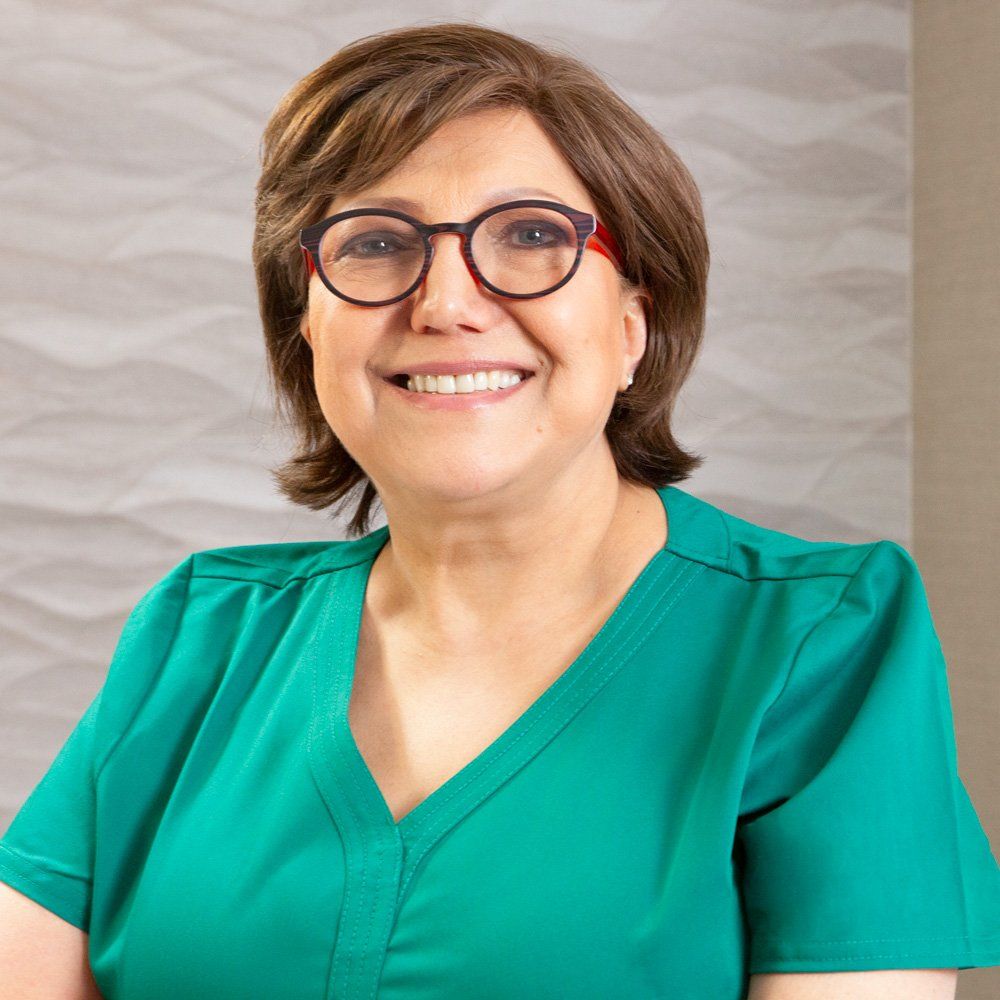Migraines, Headaches and Sleep Apnea
Headaches, migraines and sleep apnea go hand in hand. It might be hard for some people to tell which came first, the headaches or sleep apnea. Here are some of the associations between the two:
- Poor sleep can trigger headaches and migraines
- Headaches and migraines can cause insomnia and other sleep problems
- Teeth grinding associated with apnea can trigger pain in the head around the temporomandibular joint (TMJ)
- People with sleep apnea often wake up with a headache
If you suffer from headaches and migraines and have been diagnosed with sleep apnea, we provide Oral Appliance Therapy based on the groundbreaking Vivos appliance.
If you’ve not been told you have sleep apnea and suspect you might, we can help.
Call us at (301) 818-2653 to schedule a consultation with Dr. Maryam Seifi today.
How Can We Help You?
What Is Sleep Apnea?
Sleep apnea is one of the most common sleep disorders in America.
Around 1 in 5 adults have been diagnosed with sleep apnea, though many cases go undiagnosed due to unawareness about sleep related disorders. A person suffering from sleep apnea will have fitful, interrupted sleep because they stop breathing throughout the night. They wake up choking or gasping for air before typically rolling over and falling back asleep. This can happen dozens of times per night, which explains why people with sleep apnea tend to feel exhausted and get chronic migraines.
What Are the Types of Sleep Apnea?
While people who suffer from sleep apnea all have the same general problem—they stop breathing when they’re asleep—there are actually three different types of sleep apnea:
Obstructive Sleep Apnea (OSA)
Obstructive sleep apnea (OSA) is the most common type of sleep apnea in America. This type is caused by an obstruction in your airway or by pressure on your airway from excess weight.
Central Sleep Apnea (CSA)
Central sleep apnea (CSA) is the second-most common type of sleep apnea. It happens when either the brain does not send the signals to your lungs to breathe when you are asleep, or when your lungs ignore the signals.
Complex Sleep Apnea
Complex sleep apnea is the least common type of this condition. This type occurs when someone with OSA is given treatment which handles the cause of their OSA, yet their body then develops CSA. That’s why it’s also known as “treatment-emergent central sleep apnea.”
How Sleep Apnea and Migraines Are Related
The poor sleep quality caused by sleep apnea can be more than just an inconvenience – it can have dramatic impacts on your health. This is because sleep apnea can make it difficult to get the deep and restful sleep your body needs, leaving you sleep-deprived and exhausted every day.
Headaches and migraines are a common symptom of lack of sleep, which is why people with sleep apnea experience them often. Without proper treatment for sleep apnea, your health can start to deteriorate and lead to serious medical conditions that will negatively impact your quality of life.
Call us at
(301) 818-2653 to schedule a consultation if you think sleep apnea may be the reason for your headaches and migraines.
Other Common Symptoms of Sleep Apnea
Because sleep apnea causes poor sleep quality, many of its symptoms are similar to those of sleep deprivation. That’s why it can be difficult for people to recognize the symptoms and seek medical treatment. If you’re experiencing any of the symptoms below, especially if you’re also feeling fatigued, you should schedule an appointment with a sleep technician to determine if sleep apnea is the cause.
- Loud and frequent snoring
- Waking up at night gasping for air
- Daytime sleepiness
- Morning headaches
- Irritability or mood swings
- Chronic migraines
- Dry mouth when you wake up
- High blood pressure (hypertension)
- Difficulty concentrating
- Depression
- Anxiety
Long-Term Health Risks of Untreated Sleep Apnea
Like its symptoms, the effects of untreated sleep apnea are similar to long-term sleep deprivation. Your body needs deep, restful sleep in order to stay healthy. With sleep apnea interrupting your nights, you can wind up with serious medical conditions such as:
- Increased blood pressure
- Heart failure or damage
- Heart attack
- Stroke
- Liver problems
- Type 2 diabetes
- Heart disease
If you think you may have sleep apnea, it is important to get an official diagnosis from a sleep center right away to prevent or reduce your risk of these side effects. You can also call us at
(301) 818-2653 to schedule a consultation. Dr. Seifi has decades of experience treating sleep apnea, and while she cannot provide an official diagnosis, she can advise you on whether or not you should seek one.
Lifestyle Factors That Increase Your Risk for Sleep Apnea
Everyone is at risk for sleep apnea, though there are certain lifestyle factors that can increase your risk. These risk factors include:
- Being overweight or obese increases your risk of developing sleep apnea due to the excess weight on your neck when you lie down, especially if you sleep on your back.
- Smoking increases your risk because the smoke can cause inflammation in your airway, which then swells up and makes it harder to breathe easily at night.
- Frequent drug use, such as opioids or other prescription medications, increases your risk because many of these drugs relax your muscles, including the muscles in your throat.
- Drinking alcohol has the same effect as using drugs in that it relaxes your muscles and can make it more difficult to wake up if you stop breathing during the night.
The above lifestyle factors can each contribute to obstructive sleep apnea, interrupt your sleep, and lead to further health complications if left untreated. Removing these factors can
reduce your risk of developing sleep apnea.
CPAP Treatment for Sleep Apnea
Continuous Positive Airway Pressure (CPAP) is the most common treatment for sleep apnea. A CPAP machine is designed to keep your airway open while you sleep by pumping air into your airway at a continuous, steady pressure. This helps to keep your airway open throughout the night which can improve the symptoms of sleep apnea. However, CPAP is not a cure for sleep apnea; it only treats the symptoms.
While it definitely has its advantages, CPAP can be an uncomfortable choice for many people with sleep apnea due to its design. Using a CPAP machine requires wearing a face mask, which can be uncomfortable or cause skin irritation. The machine itself also makes noise, which can make it difficult to fall asleep, especially if you are a light sleeper. CPAP is the most common treatment for sleep apnea, but it may not be the best choice for everyone with this condition.
Oral Appliance Therapy for Sleep Apnea
Oral appliance therapy is a non-invasive and effective treatment option for those with sleep disorders such as obstructive sleep apnea. An
oral appliance
is a custom-made device similar to a mouthguard that fits over your teeth. It repositions your jaw and stabilizes your tongue to keep your airway open throughout the night, effectively stopping your obstructive sleep apnea. Many patients prefer oral appliances to the CPAP machine because it is smaller, more comfortable, and does not make any noise.
Benefits of Using Oral Appliance Therapy to Treat Sleep Apnea
If you’re struggling with sleep apnea, a simple oral appliance is the perfect solution for getting better rest and improving your overall health. Not only are oral appliances discreet and quiet, but they also provide many health benefits like:
- Reduced headaches and migraines
- Improved sleep quality
- Increased oxygen levels during sleep
- More energy throughout the day
- Reduced snoring
If you are seeking a comfortable solution to improve your sleep quality without having to resort to surgery or CPAP machines, then considering Vivos System could be incredibly beneficial.
The Vivos System of Sleep Apnea Oral Appliances
Dr. Maryam Seifi highly recommends
the Vivos system to her patients because it is the only oral appliance that is proven to treat the
cause of your obstructive sleep apnea. In the same way that braces gently push your teeth into alignment, the Vivos system is designed to gently shift your jaw and hard palate to widen your airway. With this amazing technology, you can completely fix the structural conditions in your mouth that led to obstructive sleep apnea in as little as 12-24 months of treatment.
Visit Breath of Life Dental for Sleep Apnea Treatment Today
Sleep apnea is a serious health concern that can have negative impacts on your health and quality of life. Fortunately, oral appliance therapy is an effective and simple treatment option that can solve the root cause of your sleep apnea. If you have been experiencing persistent headaches or migraines and think it could be linked to sleep apnea, don't wait any longer to get help.
Breath of Life Dental offers custom designed oral appliances to treat sleep apnea in adults and children. If you or someone you know is suffering from this condition, call us today to schedule a consultation and learn how oral appliance therapy can improve your quality of life and sleep. Call us at
(301) 818-2653 to schedule your consultation now!
Find Out More
Attend a free educational seminar or request a personal consultation with Dr. Maryam Seifi. Contact us online or call (301) 822-2670 or email info@breathoflifeteam.com .
Disclaimer: The information contained on this website is not intended to be a substitute for professional medical advice, diagnosis, or treatment of a medical issue. Breath of Life Dental encourages you to seek the advice of your physician or you may call our office with any questions you may have regarding TMD or sleep apnea. Everything contained on this website is presented for informational purposes only. While there are many commonalities among multiple TMD and sleep apnea cases, each patient is unique. Information on this website is strictly for educating the reader about what they should discuss with their doctor if they are suffering from the listed symptoms. If you think you may have a medical emergency, call your doctor or 911 immediately.
301-719-3123
Breath Of Life Dental is registered as a Trade Mark Privacy Policy | Cookie Policy | Accessibility Statement | Notice of Privacy Practices | Terms and Conditions
All Rights Reserved | Breath of Life Dental, an office of Dr. Maryam Seifi
Website designed and maintained by Xpress, INC

